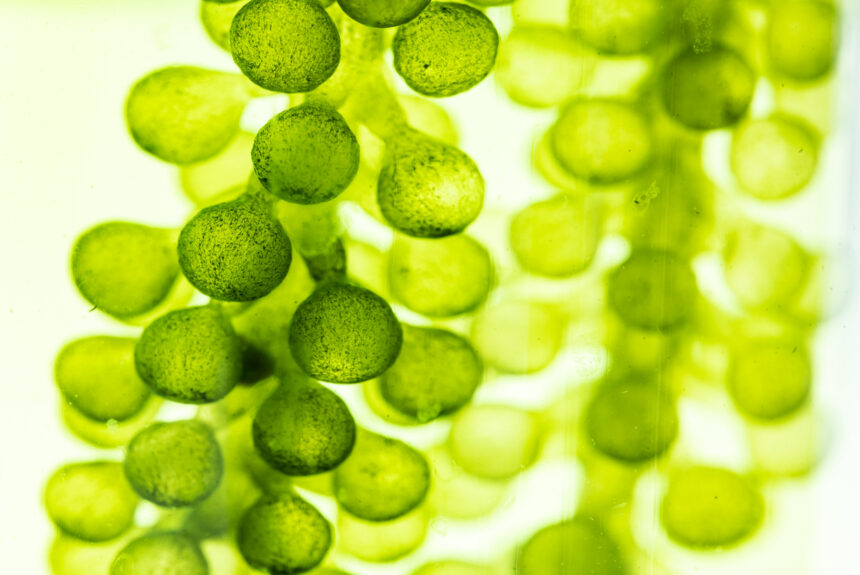Researchers from the Department of Energy’s Pacific Northwest National Laboratory (PNNL) have pioneered a groundbreaking method to accelerate algae growth while capping CO2 levels, an innovation that could revolutionize the algaculture industry. By coupling electrochemical and biological methods with marine carbon dioxide removal (mCDR), researchers at PNNL’s Sequim laboratory discovered that the acidic byproduct from a process that neutralizes the oceans’ pH can actually make algae grow faster.
>>>READ: This Game-Changing Seed Technology Could Transform the Way We Farm
Algaculture, or the cultivation of algae for commercial purposes, has become a massive industry, supplying resources for food production, biofuels, and pharmaceuticals. The global market for algae products is currently valued at approximately $5 billion and is projected to grow at a compound annual rate of 4.8% to reach $9.1 billion by the end of 2032.
Unfortunately, the intentional farming of algae under controlled conditions generates a range of climate-warming emissions spanning from methane to nitrous oxide to carbon dioxide (CO2). In order to grow, algae require CO2, a critical component that kickstarts photosynthesis. This carbon dioxide is typically obtained from natural gas refineries, although the CO2 fed to algae in cultivation systems can also be captured at point-source directly from industrial facilities, power plants, and other large emitters.
PNNL’s breakthrough, which was published in Environmental Science & Technology Letters, takes CO2 directly from the ocean. This not only uses the acid harvested from seawater but does not contribute to any additional emissions. This is important because the generation of CO2 from algae cultivation continues to present a significant challenge for the algaculture industry.
Currently, farming algae for carbon capture consumes a significant amount of energy. Establishing an alternative pathway for commercial algae cultivation that emits zero greenhouse gases represents a significant breakthrough for the industry. This is particularly relevant when it comes to advancing electrochemical mCDR techniques, where concerns over how to deal with the acid byproduct from ocean alkalinity enhancement have long hampered ocean-based carbon dioxide removal efforts.
“By joining the technological and nature-based methods of carbon dioxide removal, we can create a more sustainable process. The algae neutralize the acid, making the stream suitable for return to the ocean, and the combined process increases the overall carbon dioxide removed from the atmosphere,” said Chinmayee Subban, a chemist at PNNL and co-author of the study.
>>>READ: Lab Grown Algae Could Play a Pivotal Role in Reducing Global Emissions
A whopping 50 to 60% of the oxygen we breathe is likely produced by marine algae, according to Scott Edmundson, a biologist at PNNL-Sequim and coauthor on the new research. “We can get very complicated in all of our technological solutions for capturing gigatons of carbon dioxide from the atmosphere, but algae and plants can use it in photosynthesis, which is this beautiful natural process that already provides the basis for most of our human needs,” Edmundson reminds us.
By leveraging the carbon-consuming properties of algae, researchers have devised a method to optimize this natural process through human engineering, offering a more sustainable pathway for algaculture.
Nathalie Voit is a freelance content creator and a graduate of the University of Florida. She is an alumni of The Heritage Foundation’s Young Leaders Program.
The views and opinions expressed are those of the author’s and do not necessarily reflect the official policy or position of C3.
